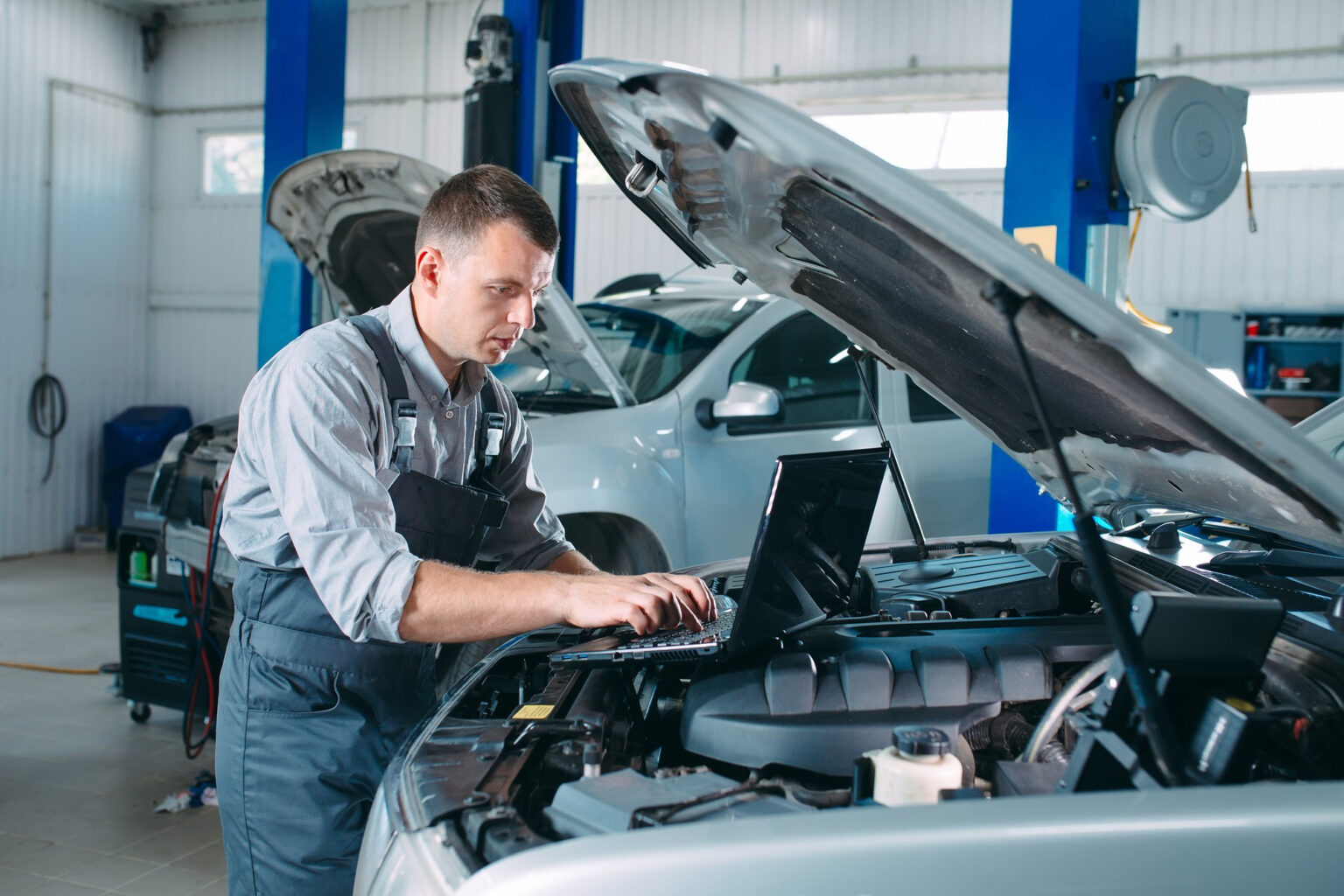auto electrician
An auto electrician plays a vital role in keeping vehicles running smoothly by focusing on their electrical systems. These specialists are trained to install, maintain, and repair the electrical components of cars, ensuring everything from headlights to wiring harnesses functions properly. This expertise is essential in today’s vehicles, which rely heavily on advanced electrical systems for performance and safety.
To become an auto electrician, individuals typically need specialized education and certifications. This training covers a range of topics, including diagnostics for common electrical issues that drivers often face. As the automotive industry evolves, skilled auto electricians can advance their careers through continued learning and experience, opening doors to various job opportunities.
With growing technology in vehicles, the demand for qualified auto electricians is on the rise. They not only solve intricate problems but also contribute significantly to vehicle maintenance, helping customers confidently keep their cars in top condition.
Key Takeaways
- Auto electricians specialize in the electrical systems of vehicles.
- Education and certification are key for a successful career in this field.
- Demand for skilled auto electricians continues to grow with advanced vehicle technology.
Understanding an Auto Electrician’s Role
An auto electrician plays a crucial role in maintaining the electrical systems of vehicles. This section explores their core responsibilities and the tools they use daily.
Core Responsibilities
Auto electricians are responsible for a variety of tasks related to vehicle electrical systems. Their main duties include installing, inspecting, and repairing electrical parts of cars, trucks, and buses.
Key Responsibilities:
- Diagnosing Electrical Issues: They identify problems like battery failures, starter issues, and circuit malfunctions.
- Repairing and Replacing Components: This includes fixing or changing out batteries, wiring, and electrical control units.
- Installing Accessories: Auto electricians often install systems like alarms, infotainment systems, and lighting upgrades.
- Maintaining Equipment: Regular maintenance is necessary to ensure the electrical systems function well over time.
These responsibilities require a keen eye for detail and a strong understanding of vehicle electronics.
Tools and Equipment Expertise
Auto electricians use a variety of specialized tools and equipment in their work. Their expertise with these tools is essential for effective repairs and installations.
Common Tools Include:
- Multimeter: For testing electrical currents and voltage.
- Diagnostic Scan Tool: Helps in reading codes from the vehicle’s computer systems.
- Wrenches and Sockets: Used for mechanical work on components.
- Soldering Iron: For repairing or connecting wires.
Knowledge of safety protocols while using these tools is crucial. Auto electricians must ensure their work meets industry standards to maintain vehicle safety and performance.
Education and Certification
Education and certification are essential for anyone looking to start a career as an auto electrician. This field requires a combination of formal education, hands-on training, and relevant certifications to ensure that technicians are skilled and qualified.
Required Educational Background
To become an auto electrician, a high school diploma or GED is a basic requirement. This foundational education helps students build essential skills in mathematics and science.
Many employers prefer candidates who have completed further education, such as an associate degree in automotive technology. This program usually takes two years to finish and covers theory and practical skills related to automotive electrical systems.
Students may also benefit from attending trade schools that offer specialized training in automotive systems. These programs can provide hands-on experience, which is vital for understanding intricate electrical components in vehicles.
Certification Programs
Certification programs are vital for enhancing employability. Programs can be completed through vocational schools or community colleges and vary in length.
Some individuals earn certification in as little as 10 months, focusing specifically on automotive electrical systems. Common certifications include those from the National Institute for Automotive Service Excellence (ASE).
These credentials ensure that the auto electrician understands industry standards and practices. Many employers view certification as a requirement, making it an important step in career advancement.
Continuing Education and Training
Technology in vehicles is constantly evolving, so ongoing education is crucial. Auto electricians should pursue continuing education opportunities throughout their careers to stay updated on new systems and technologies.
Many community colleges and trade schools offer workshops or refresher courses. These programs help technicians learn about advancements in automotive technologies, such as electric and hybrid vehicles.
Participating in manufacturer-specific training can also enhance skills. This training often focuses on the unique systems in certain brands, providing specialized knowledge that can be valuable in the job market.
Common Electrical Issues and Diagnostics
Automotive electrical systems can present various issues that require skilled diagnosis. Understanding common problems and the techniques used for troubleshooting is crucial for effective repairs.
Troubleshooting Techniques
Identifying electrical issues involves following a systematic approach. The first step is to use a multimeter to check power flow. If power reaches specific components, the issue may lie with switches or motors.
Common problems include:
- Dead Battery: A frequent cause of issues. Check battery voltage first.
- Faulty Alternator: This affects charging. Testing with a voltmeter can show if it’s working.
- Damaged Wiring: Inspect for frayed or broken wires that can cause shorts.
Once the problem is found, replacing faulty parts is often the next step. Regular checks can prevent more significant issues.
Advanced Diagnostic Tools
Advanced tools provide deeper insights into vehicle electrical systems. Diagnostic machines can connect to a car’s onboard computer to pinpoint specific problems.
Some important tools include:
- OBD-II Scanner: This device reads trouble codes that help in identifying issues.
- Oscilloscope: Useful for viewing electrical waveforms and diagnosing complex problems.
- Professional Multimeters: These can measure voltage, current, and resistance accurately.
Using these tools can result in more accurate diagnoses and efficient repairs. An auto electrician is trained to utilize these tools effectively, ensuring a proper fix for electrical issues.
Career Pathways and Advancement
Auto electricians have various options for starting their careers and advancing as they gain experience. This profession offers entry-level positions, areas for specialization, and numerous paths for growth. Each step can lead to increased responsibility and better job prospects.
Entry-Level Opportunities
For those beginning in the field, entry-level positions often require a high school diploma or GED. Many start as apprentices under experienced auto electricians. This hands-on training is crucial for learning practical skills.
In these roles, they may assist in basic tasks, such as inspecting wiring and replacing batteries. Familiarity with tools and safety procedures is essential. Gaining experience enables them to move into more complex tasks and responsibilities.
Insurance and trucking companies frequently hire entry-level auto electricians, providing opportunities to grow in a structured environment.
Specializations within the Field
As auto electricians gain experience, they can pursue specializations to enhance their skills. Specializing can lead to higher pay and job satisfaction.
Some common areas include:
- Charging Systems: Focusing on battery, alternator, and starter repair.
- Wiring and Diagnosis: Learning to interpret wiring diagrams and troubleshoot electrical issues.
- Hybrid and Electric Vehicles: Gaining expertise in the software and systems unique to these vehicles.
Pursuing certifications in these areas can boost their résumé and set them apart from others in the field.
Advancing in the Profession
Advancement in the auto electrician career can stem from both experience and further education. With several years in the field, they may take on supervisory roles or become service managers.
Many auto electricians choose to pursue certifications, such as the Certificate III in Automotive Electrical Technology. This can open doors to roles in specialized areas, such as automotive safety or performance systems.
Networking and continuous learning through workshops can also create opportunities for advancement. Staying updated with the latest automotive technologies is key to long-term success in this evolving field.














